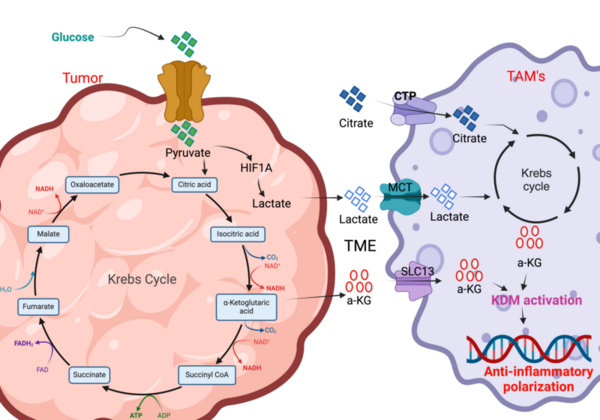Citrate and lactate drive glioblastoma progression via activation of tumor-associated macrophages
(1) Allen High School, (2) Department of Pathology and Immunology, Baylor College of Medicin
https://doi.org/10.59720/24-258
Glioblastoma multiforme (GBM), the most aggressive primary brain tumor, presents a poor prognosis with a high resistance to current therapies. GBMs are highly associated with the tumor microenvironment (TME), which has become central to cancer research. Within the TME, tumor-associated macrophages (TAMs) can adopt pro-inflammatory or anti-inflammatory states, playing a significant role in tumor progression. We investigated the metabolic interaction between GBM cells and TAMs, specifically focusing on how citrate and lactate contribute to GBM advancement. We hypothesized that citrate and lactate drive GBM progression by modulating TAM polarization, promoting an anti-inflammatory state that supports tumor growth. Through gene expression analysis of GBM tumors and TAMs, alongside survival analysis of specific markers, we found a strong correlation between poor prognosis and high levels of anti-inflammatory-like TAM markers, such as cluster of differentiation 163 (CD163) and histone lysine demethylases (KDMs). Citrate and lactate were further identified as critical metabolites that were correlated with changes in α-ketoglutarate (α-KG) production and promoted anti-inflammatory macrophage polarization. Our findings underscore the potential of targeting citrate and lactate metabolism to enhance immunotherapeutic strategies in GBM. Future studies should prioritize biomarkers of citrate and lactate metabolism and explore the mechanisms by which these metabolites drive TAM polarization and GBM progression.
This article has been tagged with: